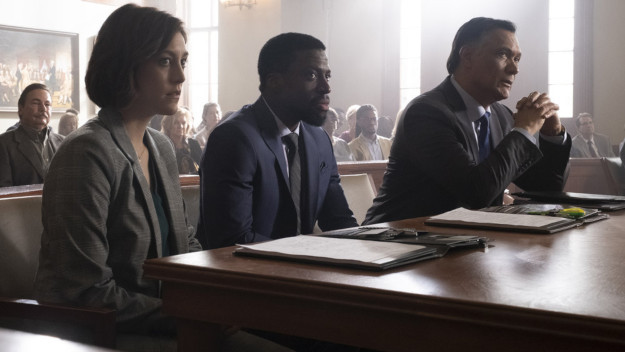
This show is so woke that they actually turned a trans-age case into the B-Plot of Episode 3.
What? You think I’m lying?!
Last December, NBC abruptly canceled a freshman courtroom drama by the name of Bluff City Law after just ten episodes. Initially, I was quite surprised by the decision because of the good-to-great cast, reasonable ratings, and relative lack of locations. Upon further reflection, however, I think I can put my finger on exactly what went wrong.
It’s the writing. When is it ever not?
While most forms of entertainment have some sort of theme or message, not all messages are created equal. Much of the time, writers try to craft generalized situations where there may not be a good answer, but balance that out by placing their own point of view into the story at some point. After that, they usually leave the moral questions up to the audience in order to reflect the difficulties of the real world.
Out of the six episodes that I managed to sit through, Bluff City Law didn’t do that once.
Soon after I started the show, I realized that the story of the week was just a mouthpiece for the writer. After our heroes do a little digging and deal with their lazily written flaws, they go after a clearly defined villain that always seems to be in opposition to the political views of someone from Los Angeles. There are no real moral questions to be had because the story isn’t interested in exploring such things. The heroes are not really flawed, the villains are villainous, and there’s usually an impassioned speech at the end of it all that tugs at the heartstrings instead of emphasizing reason.
On top of it all, there are a lot of plot points that make no sense whatsoever.
To give you a better idea of what I mean, let’s consider the plot of “The All-American.” In that episode, Sydney (Caitlin McGee) sues the show’s equivalent of the NCAA to pay for the ALS treatment of a college football star named Marcus. Meanwhile, Elijah (Jimmy Smits) sues Tennessee because Marcus wants to die with dignity. While Sydney loses her arbitration case, Elijah somehow wins his lawsuit by pointing out that the Eighth Amendment protects against cruel and unusual punishment, even though it’s clear that the amendment is designed to protect convicted criminals.
You don’t have to be a lawyer to realize that this is something that the writer should’ve picked up in a middle school history class.
In more than a few ways, the show reminds me of the propaganda that is featured in the creations of Dick Wolf, which is not a good sign when we consider the state of entertainment today. I am of the opinion that no reasonable person would sit through a piece of entertainment that is nothing more than a lecture. After all, why do that when one could watch a bunch of Youtube videos without commercial interruption for free?
To put it simply, woke entertainment is ridiculous. Stop it.
No Comments Yet